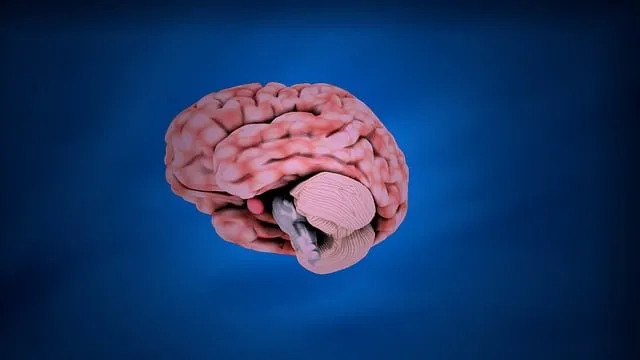The Englewood Kaiser Permanente mental health facility is a leading advocate for better mental health support, reducing stigma through accessible resources and connecting with diverse communities via its Community Outreach Program. Their multi-faceted approach includes evidence-based practices, trauma support, and self-esteem initiatives targeting marginalized populations. Through partnerships, they've improved access to care, reduced stigma, and enhanced emotional healing in the community, serving as a powerful testament to holistic mental health advocacy. Proactive strategies like mental wellness journaling and focused communication aim to evolve resources to meet diverse community needs.
Mental health advocacy initiatives play a pivotal role in fostering inclusive communities. This article delves into the profound impact of such efforts, highlighting key strategies and success stories from the perspective of Englewood Kaiser Permanente, a leading mental health facility. We explore how community engagement and targeted programs drive positive change, offering insights for scaling these initiatives globally. By understanding the importance of advocacy, we can collectively overcome challenges and ensure better mental well-being for all.
- Understanding the Importance of Mental Health Advocacy
- The Role of Englewood Kaiser Permanente in Community Mental Health Support
- Strategies for Effective Mental Health Advocacy Initiatives
- Success Stories: Impact of Advocacy Programs in Englewood and Beyond
- Overcoming Challenges: Future Directions for Mental Health Advocacy
Understanding the Importance of Mental Health Advocacy

In today’s world, mental health advocacy is a vital initiative that requires attention and action. The Englewood Kaiser Permanente mental health facility serves as a prominent example, highlighting the significant impact of accessible support services. By providing resources and raising awareness, these facilities play a crucial role in reducing the stigma surrounding mental illness. This, in turn, encourages individuals to seek help without fear of judgment or discrimination.
Mental health advocacy goes beyond simply offering treatment; it involves fostering understanding and empathy within communities. The Community Outreach Program Implementation at Englewood Kaiser Permanente has been instrumental in connecting with diverse populations, ensuring that trauma support services reach those who need them most. Through such initiatives, the facility not only improves individual lives but also contributes to a more supportive and inclusive society.
The Role of Englewood Kaiser Permanente in Community Mental Health Support

Englewood Kaiser Permanente stands as a beacon of hope and comprehensive mental health care within its community. This renowned mental health facility has been at the forefront of providing accessible and compassionate support to individuals grappling with various psychological challenges. Through its dedicated team of healthcare professionals, Englewood Kaiser offers a multifaceted approach to address the complex needs of the community.
The organization’s commitment extends beyond clinical services, actively engaging in Trauma Support Services and Self-Esteem Improvement programs that cater to marginalized populations. Moreover, their influence transcends local boundaries, as they contribute to Mental Health Policy Analysis and Advocacy, shaping broader societal narratives and ensuring mental wellness is prioritized on a national scale.
Strategies for Effective Mental Health Advocacy Initiatives

Mental health advocacy initiatives require a multi-faceted approach to effectively address the complex needs of individuals seeking support. Englewood Kaiser Permanente mental health facility exemplifies successful strategies by integrating various techniques that cater to holistic well-being. One key aspect is fostering emotional regulation through evidence-based practices such as mindfulness and cognitive behavioral therapy (CBT). These methods empower individuals with tools to manage their emotions, a crucial component in maintaining mental health and preventing crises.
Additionally, the facility prioritizes compassion cultivation practices, recognizing their profound impact on mental resilience. By fostering empathy and understanding, both among patients and care providers, the environment becomes more supportive and nurturing. This, coupled with focused efforts on mood management techniques, ensures individuals receive comprehensive care that addresses not just symptoms but also underlying emotional challenges. Such holistic approaches not only improve short-term outcomes but also equip individuals with lasting coping mechanisms for long-term mental well-being.
Success Stories: Impact of Advocacy Programs in Englewood and Beyond

In Englewood, a community once marked by challenges, an innovative mental health advocacy initiative has blossomed into a success story that’s attracting attention beyond its borders. The collaboration between local organizations and the Englewood Kaiser Permanente mental health facility has brought about significant improvements in access to care, reduced stigma, and enhanced emotional healing processes. Through targeted programs focused on depression prevention and conflict resolution techniques, residents have found support and empowerment.
This holistic approach has not only improved individual lives but also woven a stronger social fabric within the community. The initiative’s success is evident in the increased participation of community members in mental health awareness campaigns, the establishment of peer support groups, and the growing willingness to seek help without fear of judgment. This transformation serves as a powerful testament to what can be achieved when resources and efforts are directed towards fostering emotional well-being.
Overcoming Challenges: Future Directions for Mental Health Advocacy

Overcoming challenges is a vital aspect of shaping the future of mental health advocacy. Initiatives like the Englewood Kaiser Permanente mental health facility demonstrate progress in addressing community needs. However, to truly revolutionize support systems, we must look ahead and strategize. One promising direction involves integrating accessible mental wellness journaling exercise guidance into daily routines, empowering individuals to proactively manage their well-being. This approach not only fosters self-care but also reduces the reliance on reactive interventions.
Additionally, focusing on evidence-based anxiety relief techniques and enhancing communication strategies can improve service delivery. By promoting open conversations about mental health and providing practical tools for coping with stress, we can create a more supportive environment. These future directions aim to move beyond traditional models, ensuring that resources like the Englewood Kaiser Permanente facility evolve to meet the diverse needs of those seeking mental health advocacy in the modern era.
Mental health advocacy initiatives, as exemplified by the work of Englewood Kaiser Permanente mental health facility, play a pivotal role in fostering community support and improving access to care. By implementing effective strategies and learning from success stories, we can significantly impact lives affected by mental health challenges. Overcoming current challenges and charting future directions for mental health advocacy is essential to ensure that everyone receives the support they need, ultimately creating a more inclusive and compassionate society.






